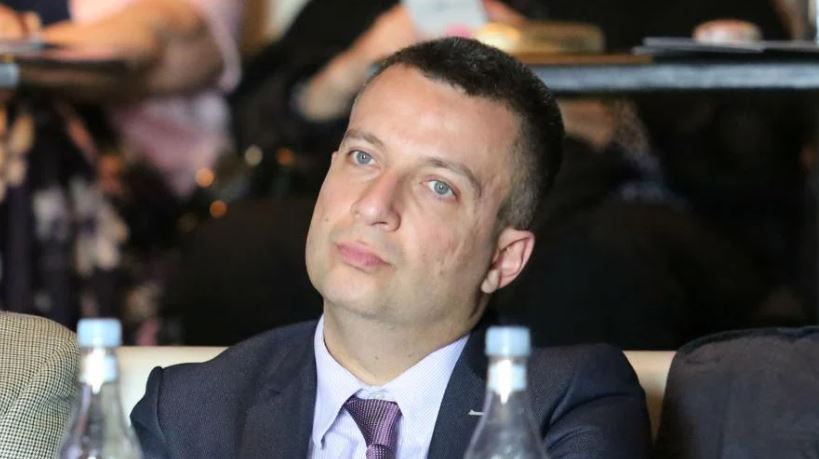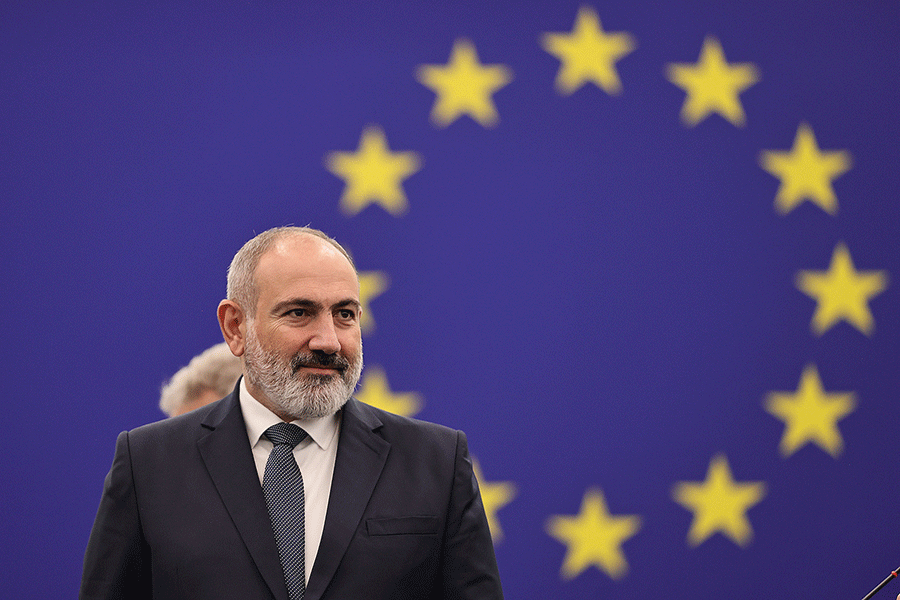The European Union’s expectations from the countries of the South Caucasus
There is no need to have exaggerated expectations in relations with the European Union. Still, it is worth comparing the facts and the perception of the European Union regarding the South Caucasus, especially since the public and non-public statements of European Union officials indicate that the European Union in the South Caucasus has no intention of taking someone’s place.
On January 23, the European Union Council announced that the European Union would send a new observation mission to Armenia for two years. The statement confirmed the Head of the European Union’s Foreign Policy Service, Josep Borrell, that with the creation of the European Union mission, “a new phase of the EU’s efforts in the South Caucasus is starting.”
That means the European Union has long-term plans for the South Caucasus, including Armenia. About the European Union, the expectations of the countries of the South Caucasus are generally straightforward. And what expectations does the European Union have from the countries of the South Caucasus: Armenia, Georgia, Azerbaijan?
Read also
Recently, the rapprochement of the Republic of Armenia and the European Union relations indicates that Armenia is striving to get out of Russian dependence and get closer to the European Union, naturally striving to become the European Union’s leading partner rather than being considered in the context of the European Union’s relations with Russia. However, there are facts that Armenia should take into account before thinking about the role of the European Union’s leading partner in the South Caucasus.
On December 14, 2023, the European Union summit decided to give Georgia the status of a candidate for the European Union. In other words, at least legally, the number one partner of the European Union in the South Caucasus is Georgia. According to the regulations of the European Union, if the state receives the status of European Union membership, many programs begin to be implemented in that country.
The senior researcher of APRI-Armenia Analytical Center, Benyamin Poghosyan, stated in an interview with “Aravot” that “it is not even important for the implementation of these programs what the government in Georgia thinks and so on. Georgia will continue to be the region’s leading partner of the European Union.”

Benyamin Poghosyan
What expectations does the European Union have from Azerbaijan, as defined by the President of the European Commission, Ursula von der Leyen, “Europe’s reliable partner in the field of energy?” Considering the European Union’s agenda of energy saving, renewable energy, and the use of solar energy, after 2030, in the long term, the oil and gas provided by Azerbaijan may not be needed by the European Union; its demand will decrease. On the other hand, there are severe doubts about whether Azerbaijan will be able to increase the volume of gas exported to the European Union to 20 billion cubic meters by 2027, about which the EU and Azerbaijan signed a memorandum of cooperation in July 2022. But the European Union needs Azerbaijan not only for oil and gas. Benyamin Poghosyan stated it is also a transit route for the EU to trade with China, bypassing Russia and Iran. “I am talking about the middle corridor. You know, in recent years, especially after February 2022, they talk about it a lot: China, Kazakhstan, Caspian Sea, Azerbaijan, Georgia, Turkey, Europe or China, Kazakhstan, Caspian Sea, Azerbaijan, Georgia, Black Sea, European Union.
What can the European Union expect from Armenia, a member of the CSTO, a strategic ally of Russia, and a member of the EAEU? The border guard troops of the Russian Federation are stationed in the Republic of Armenia, and Russia has a significant presence in Armenia’s economy. All these circumstances did not prevent the European Union from signing the SEPA (Comprehensive and Extended Partnership Agreement) with the Republic of Armenia. The EU is the largest provider of financial support to Armenia and its second-largest trading partner. In 2023, the European Union deepened its involvement in the Republic of Armenia, expanding its border monitoring mission and starting official discussions on visa liberalization. Armenia’s top leadership repeatedly makes statements to diversify Armenia’s foreign policy, but they are mostly not sufficiently argued and clear. That is the reason that some officials of the European Union hint during various private conversations that they expect a more active position from Armenia not only about expectations in the security sector but also in other fields.
It is evident that there is a change of perception in the European Union regarding the policy towards the Republic of Armenia, particularly that Armenia is trying to diversify its foreign policy and wants to reduce its dependence on Russia. According to Benyamin Poghosyan, “If before the Republic of Armenia was perceived as a state completely under Russian influence, but with which the EU should have some relations, including signing the SEPA, due to various considerations, now the Republic of Armenia is perceived as a state that is trying to reduce its dependence on Russia. In this matter, the European Union says yes, I am ready to help Armenia to reduce its dependence on Russia. Benyamin Poghosyan views the US presidential elections as a “black swan” in this matter.
That could be the case if the US presidential elections were not scheduled for November 2024. It depends on the outcome of this election; if the US policy towards Russia changes, and there are predictions that the policy with Russia will change if Donald Trump is elected, then it is unlikely that the European Union will be ready to continue the war against Russia alone. And in this case, the perception of relations with the Republic of Armenia in the European Union will change. Therefore, there is no need to have exaggerated expectations in the relations with the European Union. Still, it is worth comparing the facts and the perception that exists in the European Union regarding the South Caucasus, especially since the public and non-public statements of the officials of the European Union indicate that the European Union has no intention of taking someone’s place in the South Caucasus.
Tatev HARUTYUNYAN
“Aravot” daily newspaper, 02.03.2024






















































